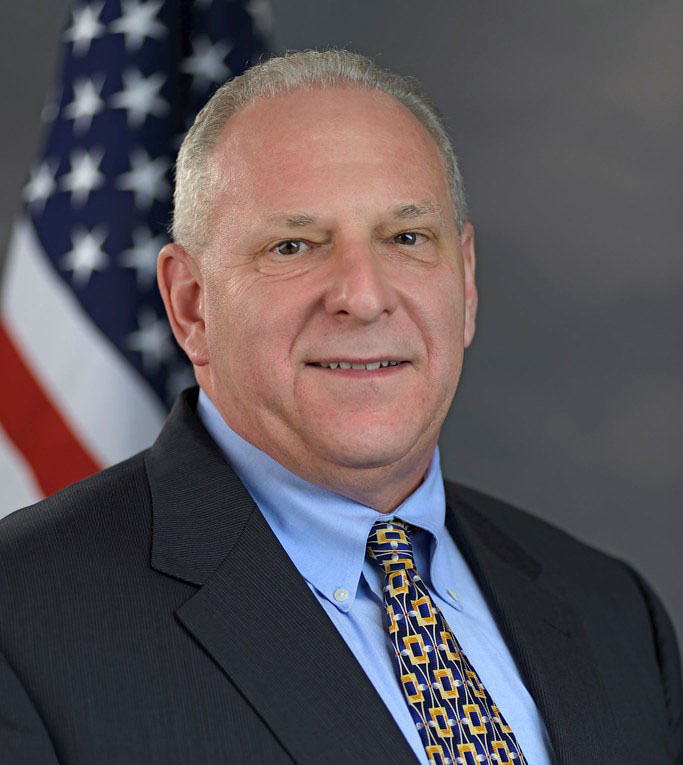(Reuters) – As the inspector general at the U.S. Securities and Exchange Commission, Carl Hoecker leads investigations into wrongdoing by agency staff. In one case, however, it was Hoecker himself who was under an investigation – one that concluded in 2019 with a recommendation that the agency consider firing him for “serious misconduct,” government records reviewed by Reuters show.
The agency instead decided in May 2020 to suspend Hoecker without pay temporarily, for an undisclosed period. He’s back on the job as the Wall Street regulator’s internal watchdog.
The investigation into Hoecker was overseen by the Integrity Committee, a federal panel that examines allegations of wrongdoing against inspectors general. Its findings have not been previously reported. The committee concluded that Hoecker abused his authority by conducting a “remarkably biased and flawed” internal probe into allegations against two of his employees, who had also worked for Hoecker at another agency.
The inspector general’s investigation, which involved an alleged sexual relationship between the employees, “created the appearance that he attempted to conceal potential wrongdoing” by the two staffers, according to the committee’s report on its investigation into Hoecker, which Reuters obtained through a public-records request.
The committee also found that Hoecker misled investigators, displaying a “lack of candor” throughout the review. In addition, Hoecker “improperly confronted” and questioned a witness – one of his subordinates – about what she had told the committee’s investigators, the report said.
“Hoecker abused his authority in the exercise of his official duties and engaged in conduct that undermines the independence and integrity” expected of an inspector general, the committee concluded in its report. It recommended that the SEC take “appropriate disciplinary action for this serious misconduct, including removal,” according to a summary of the case in an annual government report.
Hoecker and his attorney did not respond to requests for comment. Hoecker disputed the Integrity Committee’s allegations in a March 2019 rebuttal to its initial findings, saying he undertook the probe “in good faith” and conducted an “objective and thorough” investigation.
The SEC declined to comment on its handling of the committee’s findings about Hoecker. Former SEC Chair Jay Clayton, who led the agency when Hoecker was suspended, did not respond to requests for comment.
The committee started investigating Hoecker in November 2017 after two whistleblowers alleged he conducted a substandard investigation that protected the two employees. The employees – a female agent and her male supervisor – were accused of skipping work, while getting paid, to spend time together because they were having a sexual relationship. The supervisor was also accused of giving the agent preferential treatment.
Hoecker’s investigation cleared the pair of those allegations. It found instead that the male supervisor “created the appearance of an inappropriate relationship” and concluded the matter with minimal discipline, the committee said.
Hoecker told the committee in a March 2019 rebuttal to its draft findings that he did not investigate whether the pair were actually having sex because “a sexual relationship between employees is not prohibited by SEC policy.”
But a policy sent to SEC employees in February 2016, which was shared with Reuters, requires any supervisor with a romantic or sexual relationship with a subordinate to notify the agency. Failure to do so may result in termination, according to the policy.
The SEC’s Office of Inspector General did not respond to requests for comment. The two employees, whose names are redacted from the Integrity Committee’s report, didn’t respond to requests for comment. One of the employees remains at the SEC inspector general’s office; the other is now working for the inspector general’s office at another federal agency.
The Integrity Committee is a part of the U.S. Council of the Inspectors General on Integrity and Efficiency (CIGIE), a federal agency. CIGIE Executive Director Alan Boehm did not comment on the SEC’s reaction to the committee’s investigation into Hoecker but said CIGIE takes misconduct allegations against inspectors general seriously.
The Integrity Committee did not issue its own findings on whether the couple had a sexual relationship or were absent without leave; its examination focused on whether Hoecker conducted an appropriate investigation.
The Integrity Committee rarely recommends agencies consider terminating an employee the committee investigates, according to a Reuters review of CIGIE’s annual reports, which include summaries of committee investigations and recommendations.
Michael R. Bromwich, a former Justice Department inspector general, said he was surprised Hoecker was not fired, noting that he had “never heard of leaving someone in charge of a law enforcement or accountability agency who has had allegations like this sustained against him.”
The committee’s finding that Hoecker showed a “lack of candor” during its review of his actions is a serious one, according to four former government attorneys. For law enforcement officials like Hoecker, such findings can often result in termination, they said. Such allegations can undermine a law enforcement official’s standing as a witness in criminal cases because his or her credibility can easily be undermined by defense attorneys, said John Berry, an attorney specializing in disciplinary action defenses.
Lack of candour findings are “almost always a death knell” for law enforcement officials, Berry said.
In his rebuttal, Hoecker does not directly respond to the “lack of candor” finding, but contends that the committee’s draft report mischaracterized his responses to investigators.





